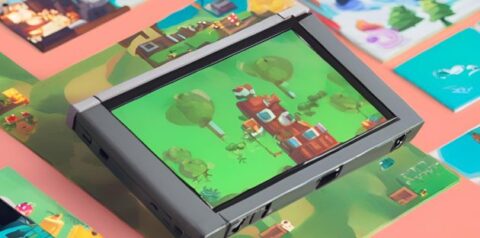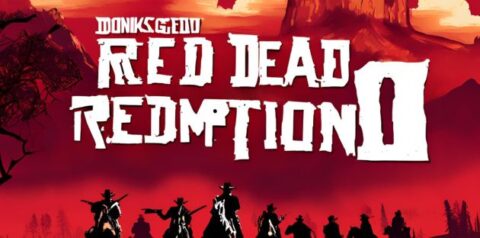In the early 2000s, Nintendo introduced the GameCube amidst fierce competition in the gaming industry. This console marked a significant technological leap and became a cultural icon for a generation of gamers. The library of games available on the GameCube comprises everlasting masterpieces that never go out of style players even today. From revolutionary gameplay mechanics to unforgettable storytelling, The history of gaming has been forever altered by these titles. Join us as we delve into the top 10 best GameCube games of all time that define a generation, celebrating the innovation, nostalgia, and enduring influence that continue to captivate gamers worldwide.
This introduction sets the stage by highlighting the GameCube era’s significance and its top games’ enduring impact. It aligns with your article’s focus on the “best gamecube games of all time that defined a generation.”
Overview of the GameCube Era
The Nintendo GameCube, released in 2001, emerged as Nintendo’s fourth home video game console, following the success of the Nintendo 64. With its distinctive cube-shaped design and a focus on innovative gameplay experiences, the GameCube quickly carved out its niche in the gaming landscape. Upon release, it garnered anticipation and curiosity thanks to its robust lineup of launch titles and the promise of enhanced graphics and gameplay. Despite stiff competition from Sony’s PlayStation 2 and Microsoft’s Xbox, the GameCube distinguished itself with its compact size, reliable performance, and a library emphasizing beloved Nintendo franchises like Mario, Zelda, and Metroid. Although it didn’t match the sales figures of its competitors, the best gamecube games of all time earned praise for its dedication to quality gaming experiences and remains fondly remembered by fans for its unique contributions to gaming history.
Criteria for Selection
The selection of the top 10 best gamecube games of all time is based on several key criteria that highlight their enduring significance in gaming history. First and foremost, each game is chosen for its popularity among gamers and critics alike, reflecting widespread acclaim and lasting appeal. Innovation is crucial, emphasizing games that introduce groundbreaking gameplay mechanics, push technical boundaries, or pioneer new genres. Influence is another critical factor, focusing on games that have a long-term influence on the gaming sector, inspiring future titles and shaping the gaming culture of their time. Combining these criteria—popularity, innovation, and influence—the chosen games exemplify the best of what the GameCube era had to offer, showcasing titles that continue to define a generation of gamers and How to Use Letterboxd for Video Games.
Top 10 Best Gamecube Games of All Time

Game 1: The Legend of Zelda: The Wind Waker
The Legend of Zelda: The Wind Waker takes players on a captivating journey across the Great Sea, following the adventures of Link as he sets out to rescue his sister and defeat the evil sorcerer Ganon. Known for its cel-shaded art style, which initially divided fans but ultimately became iconic, the game offered a vast open world to explore by sailing between islands. Its gameplay combined traditional Zelda elements with innovative mechanics like the Wind Waker baton, used to control the winds and solve puzzles. Praised for its rich storytelling, engaging gameplay, and artistic design, The Wind Waker remains a standout title on the GameCube. It received numerous accolades, including Game of the Year awards from various gaming publications. It solidifies its status as one of the best gamecube games of all time and a beloved entry in the Zelda series of .
Game 2: Super Smash Bros. Melee
After its release, Super Smash Bros. Melee became an instant classic, offering frenetic multiplayer battles featuring Nintendo characters like Mario, Link, and Pikachu. Its fast-paced gameplay and deep mechanics made it a favorite among competitive and casual gamers. Melee elevated the fighting game genre to new heights on the GameCube with various characters, stages, and game modes. It received critical acclaim for its gameplay depth, tight controls, and enduring appeal, often cited as one of the best multiplayer experiences on the console.
Game 3: Metroid Prime
Metroid Prime marked Samus Aran’s transition from 2D to 3D exploration, delivering an atmospheric, immersive experience that captivated players. The game blended first-person shooting with exploration and puzzle-solving elements in a vast, interconnected world. Its hauntingly beautiful environments and innovative gameplay mechanics, such as scanning objects for lore and clues, set a new standard for the Metroid series and first-person adventure games. Metroid Prime received critical acclaim for its atmosphere, gameplay depth, and faithful adaptation of the Metroid universe into 3D, earning multiple Game of the Year awards and cementing its place as one of the best GameCube games.
Game 4: Super Mario Sunshine
In Super Mario Sunshine, players join Mario on a tropical vacation to Isle Delfino, where he must clean up graffiti and save Princess Peach from a mysterious imposter. Known for its vibrant visuals and innovative gameplay mechanics involving FLUDD (Flash Liquidizer Ultra Dousing Device), which Mario uses for platforming and puzzle-solving, the game introduced new dynamics to the Mario franchise. Super Mario Sunshine received acclaim for its creativity, charm, and challenging gameplay, maintaining the high standards of the Mario series while offering a refreshing twist. It remains a beloved title among GameCube enthusiasts and received praise for its innovation and engaging gameplay.
Game 5: Resident Evil 4
With its explosive action sequences, strategic gameplay, and over-the-shoulder perspective, Resident Evil 4 reinvented the survival horror genre. As they look into the strange disappearance of the President’s daughter in a small European village terrorized by a demonic cult, players take on the role of Leon S. Kennedy. Future horror games were influenced by the game’s groundbreaking controls, dramatic atmosphere, and cinematic presentation, which set a new bar in the genre. For its technical accomplishments, deep storyline, and gameplay mechanics, Resident Evil 4 won praise from critics everywhere. It became the ultimate survival horror game on the GameCube and won multiple Game of the Year awards.
Game 6: The Legend of Zelda: Twilight Princess
The Legend of Zelda: Twilight Princess presents an epic tale where Link, transformed into a wolf, must navigate between the Twilight Realm and Hyrule to thwart the plans of the dark forces led by Zant and Ganondorf. Praised for its mature storyline, expansive world, and dual gameplay mechanics between human and wolf forms, the game offered a darker and more cinematic experience than its predecessors. Twilight Princess received critical acclaim for its ambitious scope, engaging gameplay, and emotional depth. It earned accolades as one of the best entries in the Zelda series and a standout title on the GameCube.
Game 7: Mario Kart: Double Dash!!
Mario Kart: Double Dash!! Introduced cooperative gameplay to the beloved kart racing series, allowing players to team up and control two characters per kart. With its trademark blend of chaotic races, colorful tracks, and inventive power-ups, the game offered exhilarating multiplayer experiences that appealed to gamers of all ages. Double Dash!! Received praise for its innovative gameplay twist, polished mechanics, and vibrant visuals, becoming a fan favorite and a cornerstone of multiplayer gaming on the GameCube.
Game 8: Eternal Darkness: Sanity’s Requiem
Eternal Darkness: Sanity’s Requiem immersed players in a chilling tale spanning multiple periods, where they uncover the mysteries behind an ancient artifact and battle against Lovecraftian horrors. Known for its psychological horror elements and innovative “sanity meter,” which simulated hallucinations and gameplay distortions, the game delivered a narrative-driven experience unlike any other on the GameCube. Eternal Darkness received acclaim for its mature storytelling, atmospheric presentation, and inventive gameplay mechanics, earning recognition as a cult classic and a standout title in the survival horror genre.
Game 9: Paper Mario: The Thousand-Year Door
Paper Mario: The Thousand-Year Door continued Mario’s charming RPG adventures in a paper-crafted world filled with humor, puzzles, and memorable characters. With its engaging turn-based combat, clever storytelling, and unique visual style, the game captivated players with its blend of traditional RPG elements and innovative mechanics. The Thousand-Year Door received acclaim for its creativity, humor, and deep gameplay, maintaining the high standards set by its predecessor and solidifying its place as one of the best RPGs on the best gamecube games of all time.
Game 10: Luigi’s Mansion
In Luigi’s Mansion, players control Luigi as he explores a haunted mansion to rescue Mario from ghosts using his trusty Poltergust 3000 vacuum cleaner. Known for its quirky humor, inventive gameplay mechanics centered around capturing ghosts, and atmospheric setting, the game provided a unique spin on the action-adventure genre. Luigi’s Mansion received praise for its charming presentation, innovative gameplay, and memorable protagonist, establishing itself as a beloved title among GameCube owners and paving the way for future Luigi-centric adventures.
Analysis of Each Game’s Impact
Each of the top 10 GameCube games left a significant mark on gaming culture and industry standards upon their release, influencing subsequent titles and shaping the gaming landscape in various ways:
1. The Legend of Zelda: The Wind Waker
- Influence on Gaming Culture: The Wind Waker challenged traditional expectations with its distinctive cel-shaded art style, initially controversial but ultimately acclaimed for its timeless visual appeal. It broadened the artistic possibilities in game design and set a precedent for experimenting with graphical styles.
- Innovations: The game introduced expansive sailing mechanics and a dynamic weather system, fostering a sense of exploration and freedom rarely seen in action-adventure games of its time. Its narrative depth and emotional storytelling set a new standard for the Zelda series and narrative-driven gameplay.
2. Super Smash Bros. Melee
- Influence on Gaming Culture: Melee became a cultural phenomenon, popularizing competitive gaming and fostering a dedicated esports community. It brought together characters from various Nintendo franchises in fast-paced, skill-based battles that appealed to casual and hardcore gamers alike.
- Innovations: The game refined and expanded upon the gameplay mechanics of its predecessor, introducing advanced techniques like wave dashing and ledge-canceling that defined competitive play. Its success cemented the Super Smash Bros. series as a cornerstone of multiplayer gaming, inspiring future iterations and competitive gaming scenes worldwide.
3. Metroid Prime
- Influence on Gaming Culture: Metroid Prime redefined the first-person adventure genre by seamlessly translating the exploration and isolation of the 2D Metroid games into a fully immersive 3D world. It captivated players with its atmospheric storytelling and emphasis on exploration.
- Innovations: The game introduced mechanics such as the scanning system for uncovering lore and puzzle-solving, setting a new standard for environmental storytelling and world-building in first-person games. Its success revitalized the Metroid franchise and influenced the design of subsequent immersive adventure games.
4. Super Mario Sunshine
- Influence on Gaming Culture: Super Mario Sunshine expanded upon the platforming formula established by its predecessors with its tropical setting and inventive gameplay mechanics involving FLUDD. It showcased Nintendo’s creativity in gameplay innovation.
- Innovations: The introduction of FLUDD allowed new platforming challenges and puzzle-solving mechanics, adding depth to the classic Mario gameplay. Its vibrant visuals and imaginative level design set a benchmark for creativity in 3D platformers and influenced future Mario titles.
5. Resident Evil 4
- Influence on Gaming Culture: With its explosive action sequences, strategic gameplay, and over-the-shoulder perspective, Resident Evil 4 changed the survival horror genre. It raised the bar for atmospheric horror and storytelling in games.
- Innovations: The game introduced a new control scheme and dynamic camera angles, enhancing immersion and strategic gameplay. Its success influenced the evolution of action-horror games and popularized the over-the-shoulder perspective, shaping the direction of future Resident Evil titles and similar games.
6. The Legend of Zelda: Twilight Princess
- Influence on Gaming Culture: Twilight Princess returned to a darker and more mature tone in the Zelda series, appealing to longtime fans while introducing new players to its expansive world and rich storytelling.
- Innovations: The game introduced innovative gameplay mechanics, such as Link’s ability to transform into a wolf and the integration of motion controls, enhancing immersion and gameplay depth. Its epic scope and dramatic storytelling style redefined the genre for narrative-driven adventure games, and it greatly impacted later Zelda titles.
7. Mario Kart: Double Dash!!
- Influence on Gaming Culture: Double Dash!! innovated the kart racing genre by introducing cooperative gameplay mechanics. This allowed players to team up and strategize during races, emphasized teamwork, and added a new layer of depth to multiplayer kart racing.
- Innovations: The game expanded upon the beloved Mario Kart formula with dual-character karts, each offering unique abilities and strategies. Its engaging multiplayer experience and inventive track designs set a precedent for innovation in kart racing games and contributed to the series’ ongoing popularity.
8. Eternal Darkness: Sanity’s Requiem
- Influence on Gaming Culture: Eternal Darkness stood out in the survival horror genre with its psychological horror elements and innovative “sanity meter,” which simulated psychological effects on the player character and gameplay mechanics.
- Innovations: The game’s sanity effects, including hallucinations and gameplay distortions, provided a unique narrative-driven experience that immersed players in its chilling atmosphere. Its mature storytelling and inventive gameplay mechanics influenced narrative-driven horror games and showcased the potential for psychological storytelling in games.
9. Paper Mario: The Thousand-Year Door
- Influence on Gaming Culture: The Thousand-Year Door blended humor with deep RPG mechanics, offering a charming and narrative-driven experience set in a paper-crafted world. It appealed to both fans of the Mario series and RPG enthusiasts.
- Innovations: The game introduced engaging turn-based combat and a unique visual style that creatively utilized the paper theme. Its witty dialogue, memorable characters, and strategic gameplay set a benchmark for storytelling in RPGs and inspired future titles in the Paper Mario series and beyond.
10. Luigi’s Mansion
- Influence on Gaming Culture: Luigi’s Mansion showcased Luigi as a protagonist in a ghost-hunting adventure, introducing innovative gameplay mechanics centered around capturing ghosts with the Poltergust 3000 vacuum cleaner.
- Innovations: The game’s inventive use of the GameCube’s hardware capabilities and humorous presentation added depth to Luigi’s character and gave a unique twist to the action-adventure genre. Its charm and innovative gameplay influenced character-driven adventures and demonstrated Nintendo’s ability to create fresh gameplay experiences within established franchises.
Collectively, these top 10 best gamecube games of all time entertained players and pushed the boundaries of game design, storytelling, and player interaction. They each contributed to gaming culture by introducing innovative mechanics, expanding creative possibilities, and leaving a lasting impact on the industry, ensuring their place in gaming history as defining titles of the GameCube era.
Conclusion
The GameCube era is a testament to Nintendo’s commitment to innovation and quality gaming experiences. The top 10 best gamecube games of all time highlighted in this article have entertained players and shaped the course of gaming history. From Zelda’s Legend: The Wind From Metroid Prime’s rich world-building to Super Smash Bros. Melee’s intense competitiveness and Waker’s inventive art, each game marks a significant turning point in the history of video games. By pushing the envelope in terms of storytelling, gaming mechanics, and inventiveness, they together defined a generation of gamers. As we celebrate these timeless classics, we invite readers to revisit these titles, whether to relive cherished memories or discover these gems for the first time. Share your experiences and memories of the GameCube era in the comments below, and continue to celebrate the enduring legacy of these remarkable games.
FAQs:
1. What made the GameCube era significant in gaming history?
The GameCube era, from 2001 to 2007, marked a period of innovation and creativity in gaming. Nintendo’s GameCube console introduced several groundbreaking titles that pushed technical boundaries and redefined gameplay experiences. It emphasized quality over quantity, focusing on iconic franchises and introducing new gameplay mechanics that continue to influence the industry today.
2. How were the top 10 GameCube games selected for this list?
The top 10 GameCube games were selected based on several criteria, including popularity among gamers and critics, innovation in gameplay mechanics, lasting influence on the gaming industry, and overall cultural impact. Each game chosen has left a significant mark in gaming history and continues to be celebrated for its unique contributions to the GameCube era.
3. What criteria were used to determine the impact of each game?
Each game’s impact was assessed based on its influence on gaming culture at the time of release, innovations introduced in gameplay mechanics or storytelling, and lasting effects on the industry. Games were selected not only for their critical acclaim and commercial success but also for their role in shaping the gaming landscape and inspiring future titles.
4. How did these games influence gaming culture during the GameCube era?
The top 10 GameCube games influenced gaming culture by introducing new gameplay mechanics, pushing technical boundaries, and setting artistic and narrative standards. They fostered dedicated fan communities, inspired creative fan works, and contributed to the evolution of gaming as a mainstream entertainment medium.
5. Can I still play these GameCube games today?
Yes, many of these games are still playable today through various means. Some have been re-released on newer Nintendo consoles or are available for digital download through virtual console services. Additionally, the GameCube console and its games remain popular among collectors and retro gaming enthusiasts, with many titles available through second-hand markets and emulation options.





